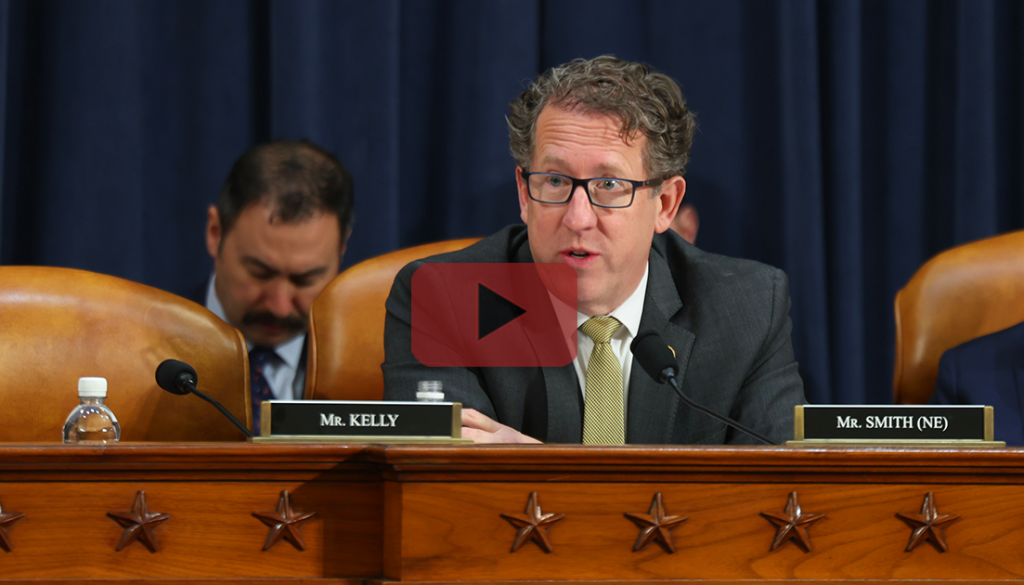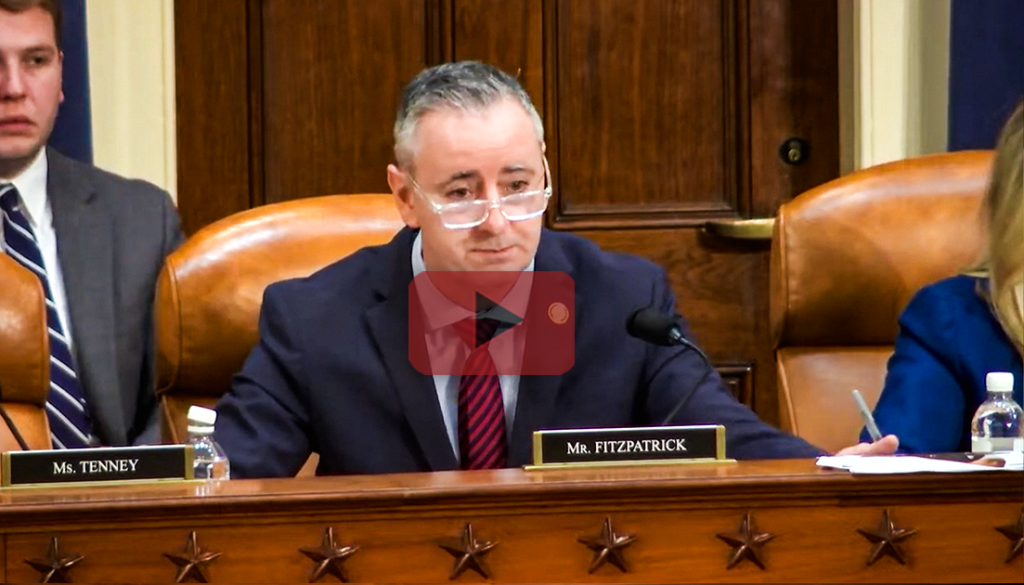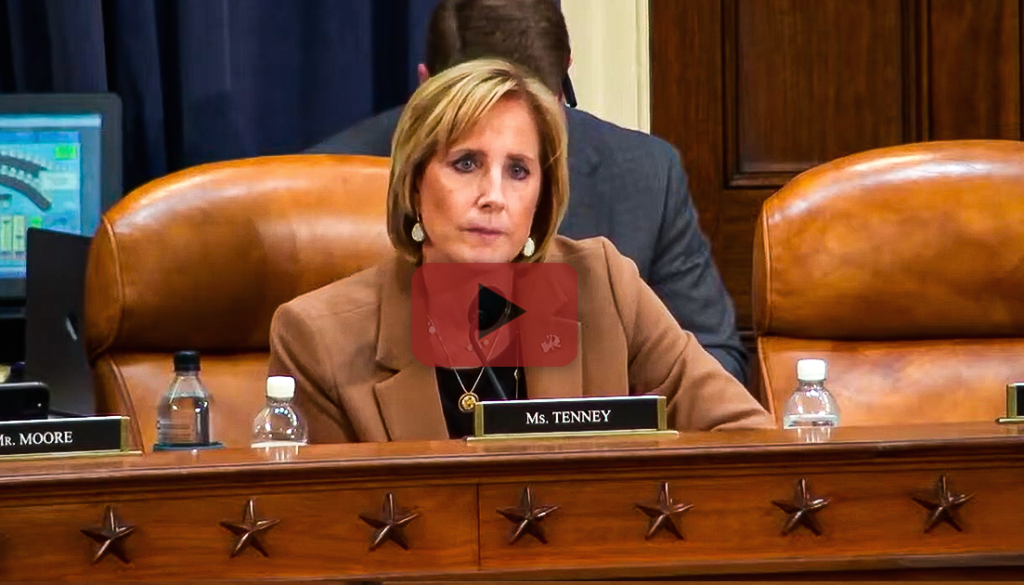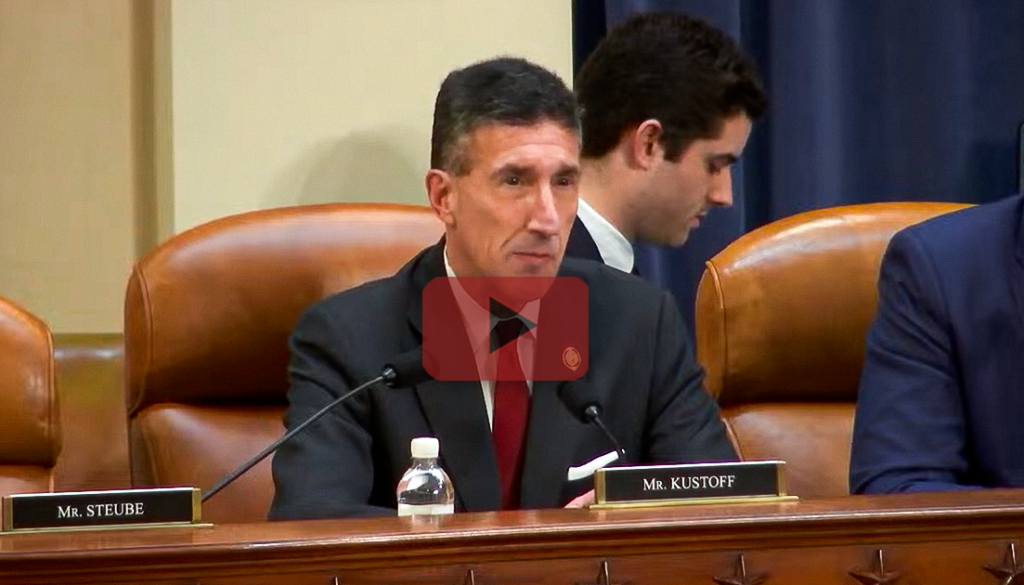WASHINGTON, D.C. – New health innovations and a greater understanding and awareness of the chronic disease epidemic present opportunities to help Americans achieve greater control over their health, witnesses told a Ways and Means Health Subcommittee hearing. Without a greater focus on prevention, America’s health care system will stay stuck in a chronic health crisis decades in the making. More than half of the nation has at least one chronic disease: this includes conditions such as diabetes, heart disease, cancer, and obesity. Chronic illness not only affects the health of the American people but also takes a serious toll on the American economy and federal budget. Medicare and Medicaid spend $384 billion annually to treat chronic diseases.
The hearing examined different avenues that employers are empowering workers and families to seek healthy options and incentivize lifestyle choices more beneficial to their well-being. An additional major theme was the power of early detection screening tests to identify chronic diseases, like cancer, before they progress and become costlier and more life-threatening to patients.
Government Red Tape Delays Early Detection of Chronic Disease
Early detection screening tests could be more widely used to catch the presence of chronic disease. However, government red tape can prevent patients from receiving those tests, such as the case for Medicare patients testing for potential lung cancer.
Rep. Vern Buchanan (FL-16): “Mr. Carlson, you talked about prevention. Some things we do a pretty good job with in terms of medicine, but there’s other areas, like lung cancer, we could probably do a much better job in terms of screening. Give us your thoughts on screening and the difference it makes. Someone said quite a few years ago, ‘People that have their first heart attack, 50 percent never see the next day.’…There could be a lot more positive impact if we had more screening for everybody.”
Dr. Jay Carlson, Missouri physician: “I agree with what you’ve said. We’ve actually inserted some barriers into the lung cancer screening program. Specifically, lung cancer screening requires a shared decision making and an attestation by providers that typically requires that patient to make a second trip in to see the provider. That barrier is huge, both on the provider who has other patients and other things to be tracking, but also the barriers of the transportation, toxicities and other components with that patient making a second trip in. Lung cancer in particular, that is something administratively you could help with. If they have the smoking history and meet the criteria, eliminate the shared decision making, eliminate the provider having to do an attestation in order to get it covered by Medicare.”
Health Savings Accounts Are the Ticket to Less Expensive Healthy Living
Americans have different health and wellness needs. One flexible option, tax-advantaged Health Savings Accounts (HSAs), can help pay for these individual care needs, including preventive health treatments. A hearing witness, owner of an Iowa small business that packages health insurance for other small businesses, shared how she has seen the popularity of HSAs rise in recent years as a means for small businesses to help their employees take care of their health.

Rep. Adrian Smith (NE-03): “Ms. Strouse, when the small business owners you serve are looking at the options available for their employees, how important do you believe it is for them to have a variety of flexible options, such as the HSA?”
Marcie Strouse, Iowa small business owner: “HSAs have become quite popular over the last several years. For us, we pretty much put an HSA-qualified plan in every one of our group benefits that we write. The majority of our employers are offering multiple choices to include the High-Deductible Health Plans that are HSA qualified. There are definitely things that we can do to expand the HSAs to allow people to use them for preventive [care] and wellness. For us, right now, if there were more holistic types of treatments that would be approved through the HSAs, that would be one way to get people to shift and save money to help pay for things like healthy meals that are being prepared.”
Preventive Care Offers Better Bang For the Buck
Currently, the American health care system is oriented toward managing illness and disease instead of preventing it. The proof is in the numbers: only three percent of health care spending is allocated to preventive services. Investing in more preventive services would not only have the primary benefit of saving lives and lead to healthier outcomes, but could also save patients and taxpayers money. Blood-based cancer screenings can catch difficult-to-detect early-stage cancers, resulting in prompt treatment that can save more than $5,000 per person.

Rep. Brian Fitzpatrick (PA-01): “America invests less than 3 percent of health care spending on preventative service. Dr Carlson, like so many on this committee, my family has been personally impacted by cancer. I am encouraged [by] innovations and multi-cancer screening as well as the opportunity to detect so many cancers much, much earlier. Can you tell us, sir, what it means to you as a physician to be able to treat at an earlier stage of cancer compared to late-stage cancers, and the impact this has specifically on patient survival rates?”
Dr. Jay Carlson, Missouri physician: “There’s no doubt that treating an early diagnosis is going to be less expensive and with better outcomes. No question.”
Small Businesses Can Help Provide Preventive Care For Employees
Employers have a key opportunity to incentivize employees to take charge of their health and wellness. Individual Coverage Health Reimbursement Arrangements (ICHRAs) offer an innovative and flexible way to provide robust health benefits. In response to a question from Rep. Claudia Tenney (NY-24), one witness shared how removing red tape to access direct primary care arrangements can prevent and treat chronic diseases.
Rep. Claudia Tenney (NY-24): “You discussed the Individual Coverage Health Reimbursement Arrangements, HSAs, health savings accounts. How can we do more of this? What can we do as a Congress? Could you just give us a little bit of your background on what we could do to help our small business community get access to health care for their employees?”
Marcie Strouse, Iowa small business owner: “As an independent agent, we sit down with our employers and look outside of the box on solutions that we can bring to the table that not only provide the preventive health side of things, but also help them to navigate their benefits to make sure they feel like benefits for them. One of the things that I haven’t had a chance to discuss today are direct primary care providers. Right now, you can basically pay a membership fee to have access to a direct primary care provider; however, you cannot run those fees through your HSA account. If that was something that was an eligible expense, I think that would be one of those preventive wellness benefits that employers could really wrap their arms around and give a much higher level of care to their employees…If somebody is dealing with a chronic disease or some sort of a condition that might be new…This would help give better access to people to manage their health care.”
Patient Privacy Is Paramount for Prevention
Heightened awareness of the value of preventive medicine and practices has led more health care systems and insurers, including the life insurance plans represented by one witness, to offer discounted access to healthy food, preventive tests, and fitness equipment. These tests help Americans through preventing chronic diseases and detecting those diseases sooner. Brooks Tingle, a leader in a life insurance company offering preventive screening tests, shared that offering these discounts with a commitment to protecting privacy data helps ensure patients take advantage of these potentially life-saving benefits.
Rep. David Kustoff (TN-08): “Are those tests [offered by] John Hancock at your cost or reduced cost or how do you handle that based on the policy holder?
Brooks Tingle, life insurance leader: “If one of our customers wants to access GRAIL Galleri test is strictly between them and Grail. We give them a discount code that they use. Some customers have come forward to us and say, I want you to know that you saved my life. I can tell you the most meaningful moments of my career…have been to stand face to face with real people who have said, I’m only here today because I happened to buy a life insurance policy with you and because you happened to offer me this Galleri test. Quite frequently now, we have those customers come forward.”



